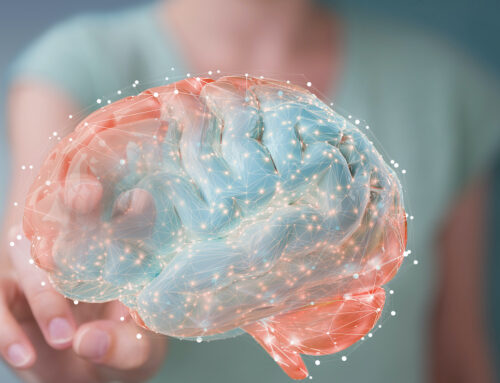We know that good nutrition keeps our bodies strong and healthy, and now, increasingly, research is showing that improving one’s diet with brain-healthy nutrients can also support our mental and neurological health.
A large study reported in Psychosomatic Medicine (2011) found that our modern Western diet, which is high in processed, high-calorie and low-nutrient foods, is linked to increased depression and anxiety, while a more recent review of studies in the American Journal of Public Health (2014) demonstrated a relationship between unhealthy dietary patterns and poor mental health in children and adolescents.
Researchers have also begun to uncover a brain-gut connection, finding that gut bacteria imbalances are associated with anxiety, depression, autism, ADHD, and schizophrenia.
Research is still limited, but physicians and psychologists are taking note. In an article recently published in The Lancet Psychiatry, an international group of scientists argued that diet is “as important to psychiatry as it is to cardiology, endocrinology, and gastroenterology.”
Can dietary changes really replace my therapist? Not likely. The causes of mental health problems are complex, and can include biological, emotional, environmental, and dietary factors. Most experts say that there is no substitution for traditional mental health treatment (psychotherapy and pharmaceutical interventions), but acknowledge that including diet and exercise in the treatment equation could be the next step in helping people feel their best.
So what should we be eating?
A number of studies have demonstrated the important role of omega-3s, Vitamin D, B vitamins, zinc, iron, and magnesium in brain health. Specifically, there appears to be a link between depression and low levels of certain B vitamins, as well as between low levels of maternal Vitamin D and a child’s risk of developing schizophrenia. Tune in next week to learn more about specific foods that can help boost our brain health.
Sources:
Gregoire, C. (2015). Diet May Be As Important To Mental Health As It Is To Physical Health. Huffington Post, Healthy Living. http://www.huffingtonpost.com/2015/02/24/diet-mental-health_n_6566376.html
Jacka, F.N., Mykletun, A., Berk, M., Bjelland, I., Tell, GS. (2011). The association between habitual diet quality and the common mental disorders in community-dwelling adults: the Hordaland Health Health study. Psychosomatic Medicine, 73(6): 483-90. http://www.ncbi.nlm.nih.gov/pubmed/21715296
O’Neil, A. et al. (2014). Relationship Between Diet and Mental Health in Children and Adolescents: A Systematic Review. American Journal of Public Health, 104(10):e31-e42.
http://www.ncbi.nlm.nih.gov/pmc/articles/PMC4167107/
Ramsey, D. & Iserloh, J. (2013). Fifty Shades of Kale: 50 Fresh and Satisfying Recipes That Are Bound to Please.
Sarris, J. et al. (2015). Nutritional medicine as mainstream in psychiatry. The Lancet Psychiatry, 2(3): 271-274.
http://www.thelancet.com/journals/lanpsy/article/PIIS2215-0366(14)00051-0/abstract





